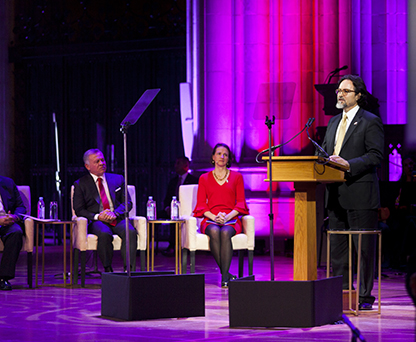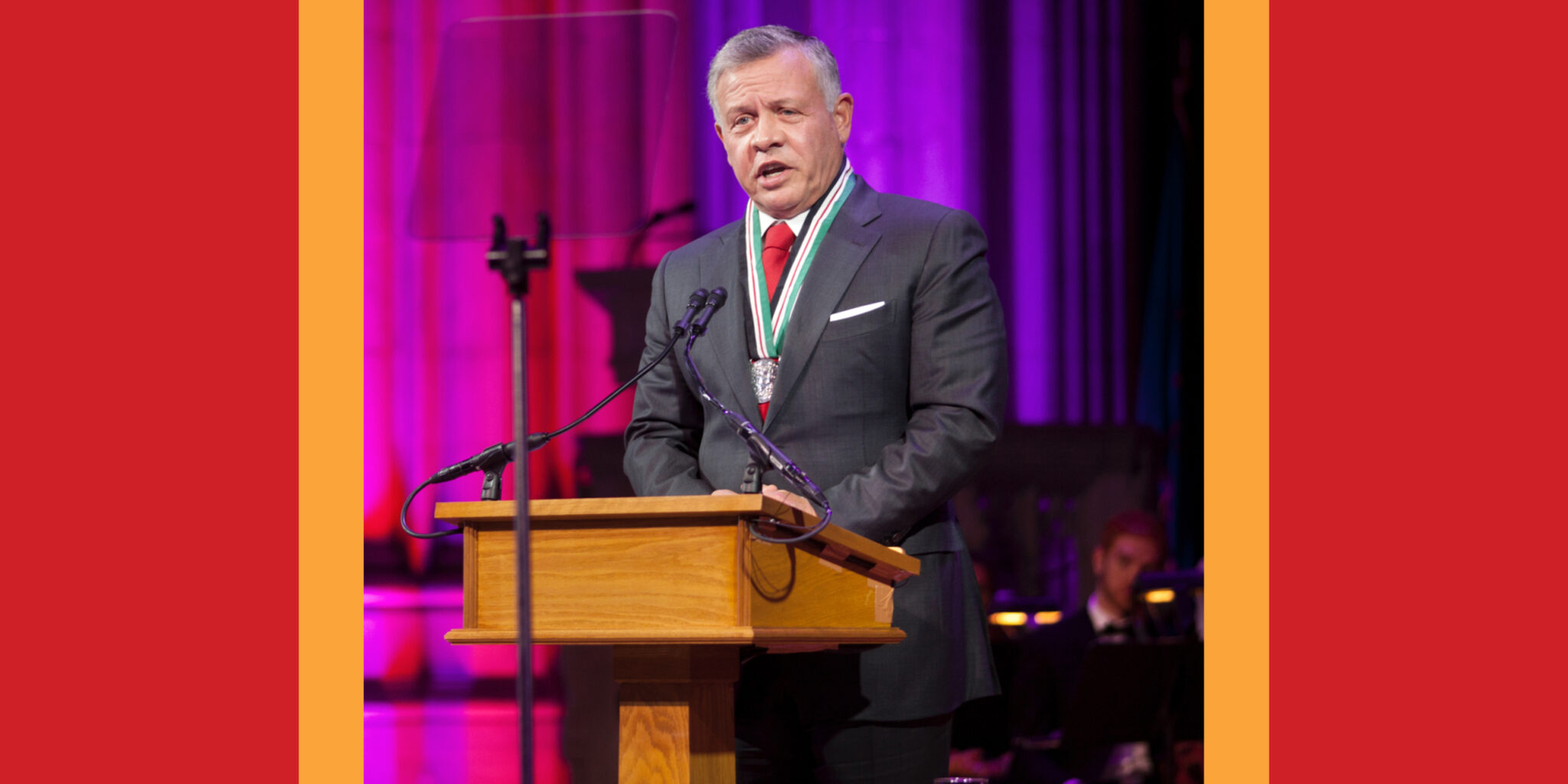The holy month of Ramadan is often referred to as the most sacred month of the Islamic calendar. It is a period of increased worship and a time to practice self-restraint, when Muslims across the world fast each day from sunrise to sunset.
According to Islamic tradition, God revealed to the Prophet Muhammad the Qur’an, Islam’s holy book, during the month of Ramadan on Laylat al-Qadr — the “Night of Power”. To mark the significance of this event, Muslims observe the holy month each year through fasting, prayer, and the practice of faithful acts and charity.
In honor of Ramadan this year, which begins on April 1, we reflect today on the words of our 2018 Templeton Prize laureate, King Abdullah II, who issued the Amman Message during the month of Ramadan in 2004. The address reminds his fellow Muslims of Islam’s great tradition of religious pluralism, compassion and tolerance, and its science of “the courtesies of differing.” King Abdullah’s message specifically outlines how the basic principles of Islam — including the fast of Ramadan — undergird the formation of a noble and unified civilization:
“Islam is founded upon basic principles, the fundamentals are attesting to the unity of God (tawhid Allah); belief in the message of His Prophet; continuous connection with the Creator through ritual prayer (salat); training and rectifying the soul through the fast of Ramadan; safeguarding one another by paying the alms tax (zakat); the unity of the people through the annual pilgrimage (hajj) to God’s Sanctified House, [performed] by those who are able; and [observing] His rulings that regulate human behavior in all its dimensions. Over history these [basic principles] have formed a strong and cohesive nation and a great civilization. They bear witness to noble principles and values that verify the good of humanity, whose foundation is the oneness of the human species, and that people are equal in rights and obligations, peace and justice, realizing comprehensive security, mutual social responsibility, being good to one’s neighbor, protecting belongings and property, honoring pledges, and more.
Together, these are principles that provide common ground for the followers of religions and [different] groups of people. That is because the origin of divine religions is one, and Muslims believe in all Messengers of God and do not differentiate between any of them. Denying the message of any one of them is a deviation from Islam. This establishes a wide platform for the believers of [different] religions to meet the other upon common ground, for the service of human society, without encroaching upon creedal distinctions or upon intellectual freedom. For all of this we base ourselves upon His saying:
The messenger believes in what has been revealed unto him from his Lord as do the believers. Each one believes in God and His angels and His scriptures and His messengers. We make no distinction between any of His messengers—and they say: ‘We hear, and we obey. [Grant us] Your forgiveness, our Lord. Unto You is the journeying,’ (2:285)”
— King Abdullah II, The Amman Message, 2004
Still Curious?
Explore John Templeton Foundation-funded research within our Islam, Science, & Society funding area that combines Islamic thought with relevant sciences in order to address global challenges that are shared across regions and cultures.



